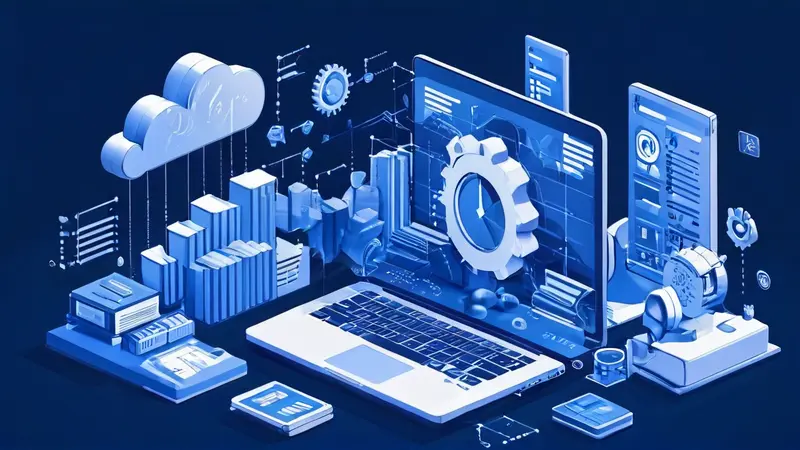The editor of Downcodes brings you an in-depth analysis of IoT technology and its applications. The article introduces in detail the specific applications of IoT technology in six major fields, including smart homes, smart transportation, smart medical care, industrial automation, smart cities and smart agriculture. It also explains through vivid cases how IoT technology can improve efficiency and improve life. and promote social progress. This article aims to help readers fully understand the wide range of applications and future development trends of IoT technology, and answer some common questions so that you can have a deeper understanding of IoT technology.

IoT technology is widely used in many fields such as smart homes, smart transportation, smart medical care, industrial automation, smart cities, and smart agriculture. Among them, smart home is one of the most widely used scenarios in IoT technology. It allows users to manage various smart devices in the home through network devices, such as smart door locks, smart lighting, security systems, temperature control and energy management, etc., thereby bringing a more comfortable, convenient and energy-saving life experience. For example, in the field of smart homes, devices connected through the Internet of Things platform can automatically sense changes in the environment and make corresponding adjustments to improve users' living safety and comfort.
The application of IoT technology in the smart home field makes traditional home equipment "smarter". Home devices such as lamps, appliances, doors and windows can all be interconnected through the Internet of Things and respond to user commands or according to preset conditions.
Smart home systems can automatically adjust indoor temperature, lighting and home entertainment equipment based on user habits. At the same time, users can remotely monitor the security of their homes and control various devices in their homes through mobile devices such as smartphones.
Internet of Things technology can realize the interconnection of vehicles, roads and traffic lights in intelligent transportation systems, significantly improving traffic efficiency and reducing accident rates.
In the field of intelligent transportation, IoT technology is mainly used for traffic flow monitoring, vehicle positioning, intelligent parking management, public transportation system optimization, etc. Such systems can reduce traffic congestion, reduce environmental pollution, and respond to emergencies in real time.
The application of IoT technology in the medical industry is called smart healthcare or smart healthcare. It allows real-time monitoring of patients' health status, collection of health data through wearable devices, and enables doctors to diagnose and treat remotely.
In the field of smart medical care, IoT technology can not only track patients’ vital signs in real time through remote monitoring equipment, but also manage medical records and drug distribution, thereby improving the quality and efficiency of medical services.
IoT technology plays a vital role in the field of industrial automation. By connecting sensors, machines, and workers, the Industrial Internet of Things can optimize production processes, increase energy efficiency, reduce downtime, and improve product quality.
The Industrial Internet of Things provides predictive analytics for equipment maintenance, warning of problems before they occur, thereby reducing production delays. In addition, it can intelligently adjust the production line to meet market demand in a more efficient way.
In smart city scenarios, IoT technology is used to optimize urban operation management, such as traffic management, energy distribution, public safety and environmental monitoring.
The Internet of Things enables city managers to monitor the use of various resources in the city through various sensing devices and integrate data information for more accurate decision support. For example, smart waste management systems can optimize waste collection routes and frequency, saving costs and reducing urban pollution.
The application of IoT technology in agriculture helps the practice of precision agriculture. It can monitor soil moisture, crop growth conditions, environmental temperature and other indicators to guide the planting, irrigation and harvesting of crops.
By deploying sensor networks in farmland, smart agricultural systems can monitor the farmland environment in real time to ensure healthy crop growth. They can also optimize agricultural production processes by analyzing data and improve crop yield and quality.
The article describes in detail the actual role and significance of IoT technology in different application scenarios. The construction of key areas such as smart homes, smart transportation, smart medical care, industrial automation, smart cities, and smart agriculture all benefit from the use of IoT technology. Integration and application. The Internet of Things connects various information-sensing devices to the network through the Internet, enabling things to be connected and people to interact, making life and work more intelligent and convenient. With the continuous advancement of technology and the expansion of applications, the Internet of Things will show its huge potential and value in more fields.
Q: In what areas can we see the application of IoT technology?
A: The applications of IoT technology are very wide, covering various industries. These include smart homes, smart cities, smart transportation, smart healthcare, smart manufacturing, smart agriculture, etc.
All in all, IoT technology is profoundly changing our lifestyle and production model. Its future development potential is huge and deserves our continued attention and exploration. The editor of Downcodes looks forward to witnessing more surprises brought by IoT technology with you!